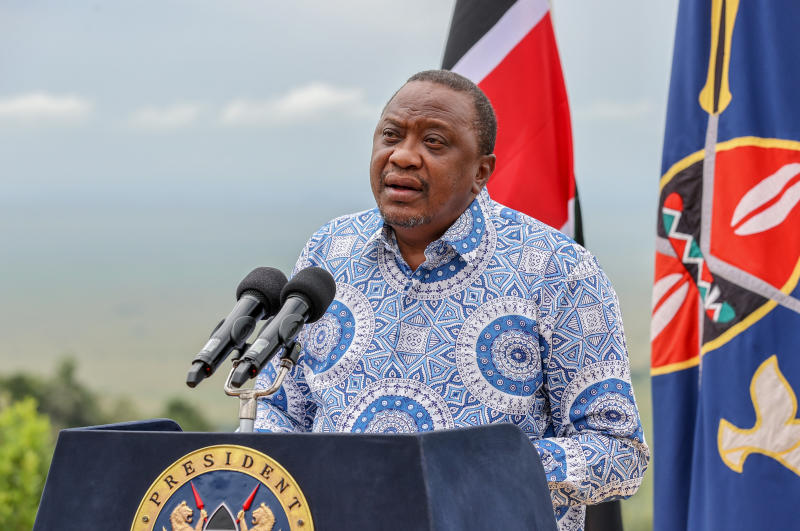×
The Standard e-Paper
Smart Minds Choose Us

President Uhuru Kenyatta delivers New Year Message 2021 on December 31, 2020. [PSCU, Standard]
President Uhuru Kenyatta’s interview with four Mt Kenya vernacular radio stations was a first an address to Raila Odinga and then to the nation. And because pumpkins are vegetables, the president will spend a good part of 2021 fighting the 'anonymous' and defending Raila and ODM by extension.